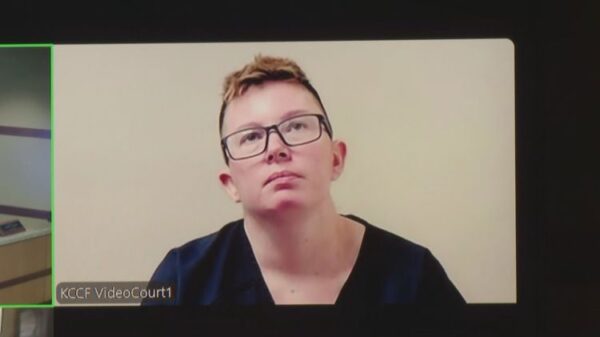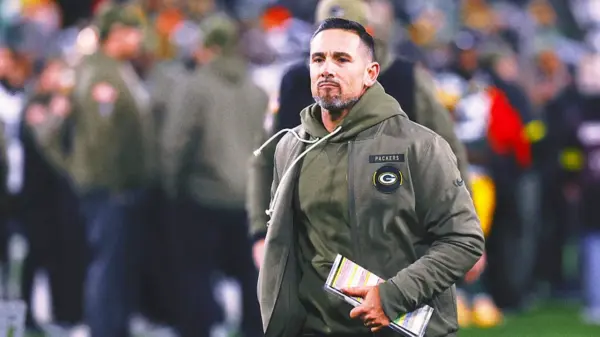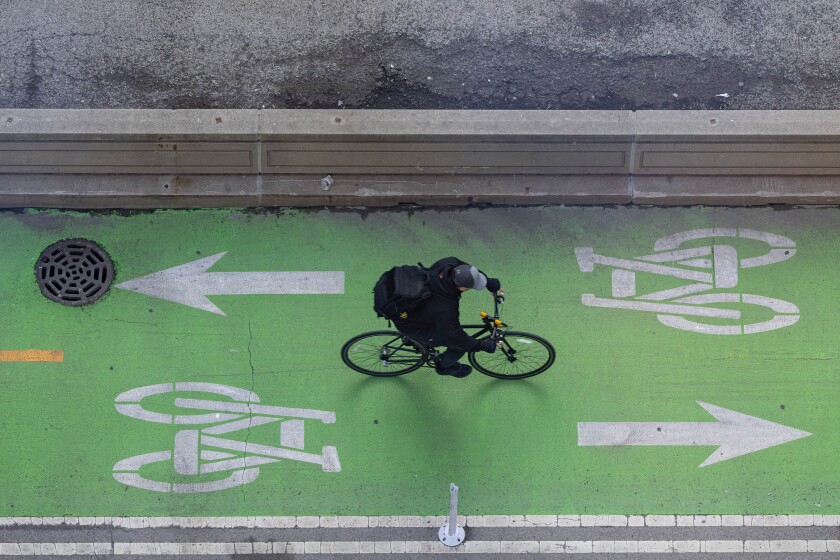URGENT UPDATE: The federal government has just announced the cancellation of a critical $675,000 grant for traffic safety projects, including a vital bike and pedestrian trail in McLean County, Illinois. This shocking decision comes as local officials were poised to complete the last nine miles of a project along the historic Route 66.
McLean County officials had been eagerly awaiting this funding since their application was approved in June 2024. However, on September 9, they were informed by the U.S. Department of Transportation (U.S. DOT) that the grant would not be awarded due to the project’s lack of emphasis on vehicular traffic. This decision is part of a broader trend, as the U.S. DOT has been rescinding grants across the country for similar reasons, raising concerns about pedestrian safety initiatives.
The U.S. DOT’s letter, addressed to Assistant Administrator Cathy Dreyer, stated that McLean County’s project “no longer aligns with DOT priorities,” which now favor projects that promote vehicle travel. The rejection of this grant is a significant blow to local efforts aimed at enhancing community safety and economic growth.
County officials argue that completing the Historic Route 66 Bike/Pedestrian Trail would greatly benefit local economies, particularly in rural communities. Planning documents indicate that many roadways in McLean County are rated as “moderately low” to “extremely low” due to high traffic volumes, which underscores the need for safer alternatives for cyclists and pedestrians.
“Numerous studies show that the economic impact of this project could be significant,” the planning documents state. However, with the federal funding now off the table, the future of the trail is uncertain. While McLean County has applied for state funding as a backup, the timeline for these grants remains unclear.
The cancellation of this grant aligns with a worrying trend in transportation policy under the current administration. Recent decisions in cities like San Diego and Boston have seen similar funding rescinded due to projects deemed “hostile to motor vehicles.” Advocates for pedestrian safety are alarmed, with Kyle Lucas, executive director of Better Streets Chicago, calling the federal withdrawal “flat out absurd.”
“We have fought very hard for many years to get to a point where we are investing in choices for how people want to get around,” Lucas stated.
As cities across the nation, including Chicago, strive toward the ambitious “Vision Zero” goal to eliminate traffic fatalities, this federal decision raises significant concerns. Chicago, which set out to eliminate traffic deaths by 2026, reported 109 fatalities last year, highlighting the urgent need for safer infrastructure.
The impact of this funding loss extends beyond McLean County. Advocates argue that investing in bike and pedestrian infrastructure is crucial for reducing carbon emissions and promoting sustainable transport options. Yet, with the federal government focusing on roadway expansions, those efforts may be jeopardized.
Former President Donald Trump has been criticized for rolling back many climate-focused initiatives from the Biden administration, favoring a transportation agenda that prioritizes traditional vehicles. This shift could further undermine local projects aimed at fostering pedestrian safety and environmental sustainability.
In response to the recent federal decision, Dreyer confirmed that McLean County officials had already anticipated potential delays and applied for state grants to mitigate the impact. She mentioned plans to pursue a new U.S. DOT grant expected to open later this year in hopes of reigniting efforts to complete the trail.
“Freedom isn’t being forced to get around by a car,” Lucas emphasized. “It’s about giving people true choices in transportation.” The community now faces an uphill battle to secure funding and realize the vision of a safer, more accessible Route 66 trail.
As this story develops, many will be watching to see how local and federal officials will navigate the challenges of funding pedestrian and cyclist safety initiatives. The implications for economic development and public safety are immense, making it a critical issue for residents and advocates alike.





































































